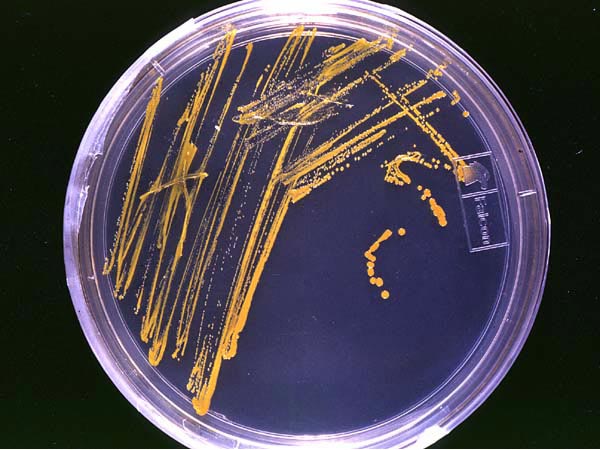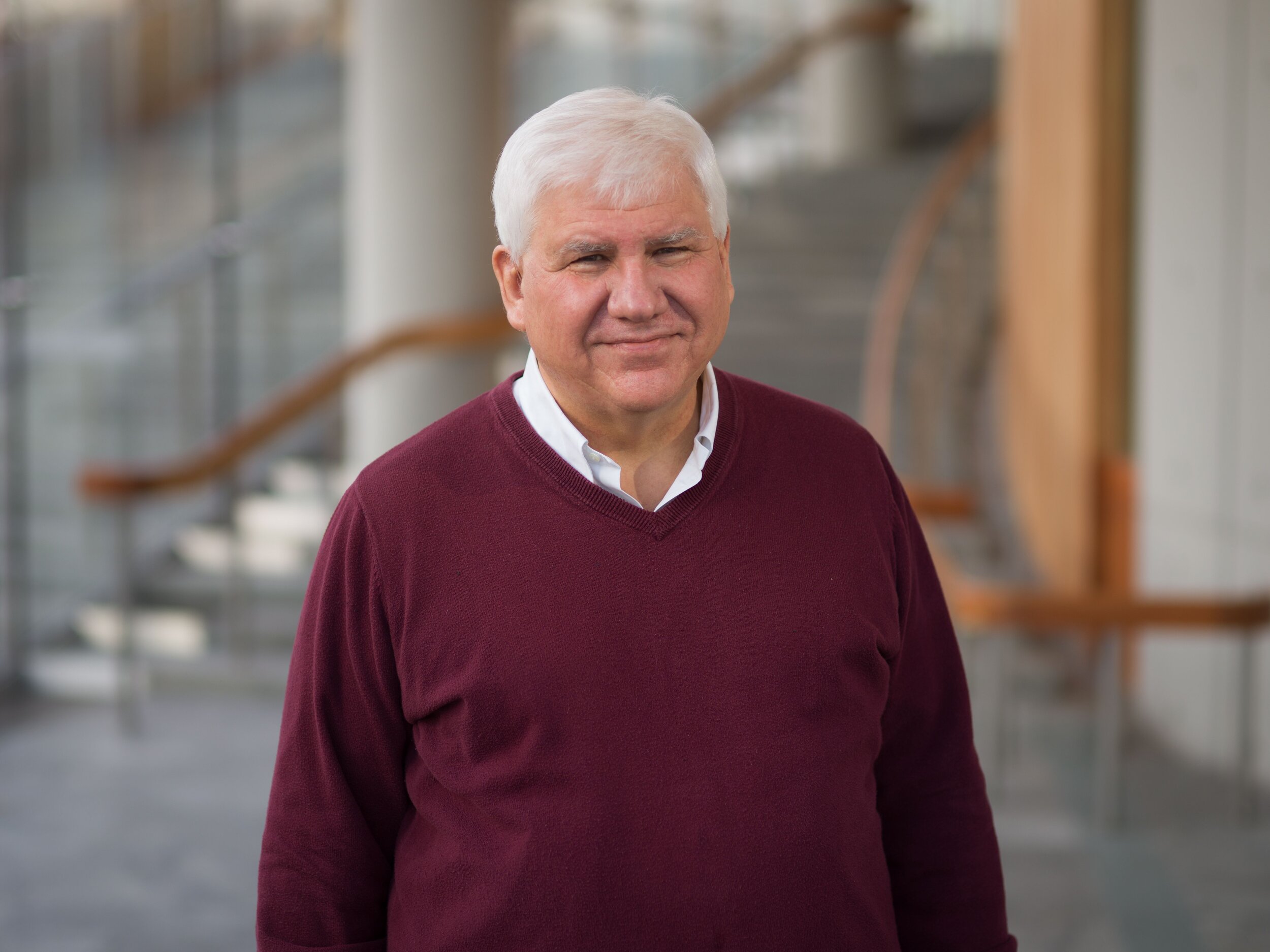






Laboratory of Dr. William R. Jacobs Jr.
The Jacobs Laboratory is located at Albert Einstein of College Medicine. It is the home of exciting research on the "death defying" pathogen, Mycobacterium tuberculosis.
image from the cover of Journal of Infectious Diseases, July 2013
Laboratory of Dr. William R. Jacobs Jr.
The Jacobs Laboratory is located at Albert Einstein of College Medicine. It is the home of exciting research on the "death defying" pathogen, Mycobacterium tuberculosis.
image from the cover of Journal of Infectious Diseases, July 2013
Mycobacterium tuberculosis
Our Focus
Tuberculosis, caused by Mycobacterium tuberculosis, causes one in four avoidable deaths in the Third World and kills more adults than malaria, AIDS, and all tropical diseases combined. In recent years, there have been dramatic increases in the numbers of new cases worldwide - one of the consequences of the AIDS epidemic. In addition to these increasing incidences, there has been an emergence of M. tuberculosis strains that are resistant to all seven anti-tuberculosis agents. These alarming trends have caused the World Health Organization to declare tuberculosis a global health emergency, a distinction never accorded another disease. My laboratory has focused its efforts on developing systems to genetically manipulate mycobacteria, particularly M. tuberculosis. These tools have allowed us to: 1) develop the luciferase reporter phage assay for rapid assessment of drug susceptibilities, 2) analyze the genes involved in resistance to tuberculosis drugs such as isoniazid, ethionamide, and etyhambutol, and 3) to identify specific phenotypic properties associated with a tuberculosis pathogenesis. Current research efforts are aimed at identifying genes involved in the virulence of M. tuberculosis, identifying novel drug targets, generating rapid and robust phage diagnostics for drug resistant strains of M. tuberculosis, and engineering attenuated mutants of M. tuberculosis and other mycobacteria that can be used as live-cell tuberculosis vaccines.
Vaccine Development
TB Diagnostics
Mycobacterial Genetics
Drug Discovery

Presidential Lecture
Presidential Lecture
Dr. Jacobs Presents at The Second Annual Einstein-Montefiore Presidential Lecture
Pursuing Edward Jenner’s Revenge with Recombinant Herpes Vaccine Vectors
William R. Jacobs, Jr., Ph.D., delivered his lecture, “Pursuing Edward Jenner’s Revenge with Recombinant Herpes Vaccine Vectors” at the second annual Einstein-Montefiore Presidential Lecture. The event was held at Albert Einstein College of Medicine. Dr. Jacobs is a professor of microbiology and immunology at Albert Einstein College of Medicine and a member of the National Academy of Sciences. Watch full event: https://youtu.be/S8yLM7B2Dy0

William R. Jacobs Jr.
William R. Jacobs Jr.
William R. Jacobs Jr. Ph.D., a Member of the National Academy of Sciences and Professor of Microbiology and Immunology and Genetics at the Albert Einstein College of Medicine, has dedicated his life to the study of Mycobacterium tuberculosis and M. leprae¸ the causative agents of tuberculosis (TB) and leprosy, respectively. Using a novel mycobacteriophage vector, termed a shuttle phasmid, he was the first to introduce foreign DNA into mycobacteria in 1987. Shuttle phasmids enabled the development of: 1) the first mycobacterial plasmid transformation system, 2) the efficient transposon mutagenesis, and 3) specialized transduction-an efficient allelic system that enables the generation of a complete set of precise null deletions of M. tuberculosis. Moreover, shuttle phasmids enabled the development of reporter mycobacteria phages to rapidly assess drug susceptibilities of M. tuberculosis strains. The Jacobs’ lab used newly developed genetics to identify the previously unknown target of isoniazid-the cornerstone of TB treatment, analyzed the primary attenuation of the vaccine strain BCG, and engineered M. tuberculosis-based TB vaccine strains.
Dr. Jacobs is also one of two leading investigators engaged in the KwaZulu-Natal Research Institute for Tuberculosis and HIV, a partnership aimed at controlling the dual epidemic of HIV/TB that is particularly prevalent in sub-Saharan Africa. He is currently developing rapid diagnostic tests for XDR and MDR-TB using GFP- reporter phages. His work has shifted to focus on persistence in MTB- one aspect that can be considered the greatest impediment to the eradication of TB infection.
“There is no sin in being ignorant; The sin is to remain ignorant”

Features
Features
X-Vax Technology Raises $56 Million in Upsized Series A Financing to Advance Lead Herpes Vaccine Program
-A new approach to beating herpes by inducing antibodies that mediate the killing of infected cells
-Participants include Johnson & Johnson Innovation - JJDC, Inc. (JJDC); Adjuvant Capital, an impact investment fund supported by the Bill & Melinda Gates Foundation as an anchor investor; Serum Institute of India; Alexandria Venture Investments; Founders Fund
Art by Jorge Colombo
Losing His Sight, a Scientist Sees an End to a Deadly Disease
In a Nautilus profile, Dr. William Jacobs, Jr., discusses the key breakthroughs in his tuberculosis research and how losing his vision impacted his career path.
Photo by Marissa Mile
Bill Jacobs, the TB terminator
The American Association for the Advancement of Science features Dr. William Jacobs, Jr., dubbed the “TB Terminator,” on its “Member Spotlight” blog. The profile highlights Dr. Jacobs’ pioneering use of molecular genetics to control TB, his drive to discover a new vaccine and his work to encourage student interest – from high school to the master’s level – in science.
MTM Episode 78
TUBERCULOSIS TREATMENT AND MYCOBACTERIAL GENETICS WITH BILL JACOBS
Host Julie Wolf interviews Bill Jacobs on ASM's Meet the Microbiologist podcast. He talks about developing mycobacterial genetic tools and using them to discover ways to shorten TB treatment. He also talks about the SEA-PHAGES program that allows high-school students to participate in phage discovery.

Lab Personnel
Meet the members of the Jacobs Laboratory
Lab Personnel
Meet the members of the Jacobs Laboratory

Herpes Vaccine
Herpes Vaccine
Herpes simplex virus infections remain a serious global health problem and are the leading cause of genital ulcer disease, a major co-factor in the HIV epidemic, and associated with significant morbidity and mortality in newborns born to mothers who are infected. In a recent publication in eLife, Drs. William Jacobs and Betsy Herold of the Albert Einstein College of Medicine have taken a giant step toward developing a viable herpes vaccine.
X-VAX tECHNOLOGY
Peer-review Articles on the HSV-2 ΔgD vaccine
The Journal of Infectious Diseases


















